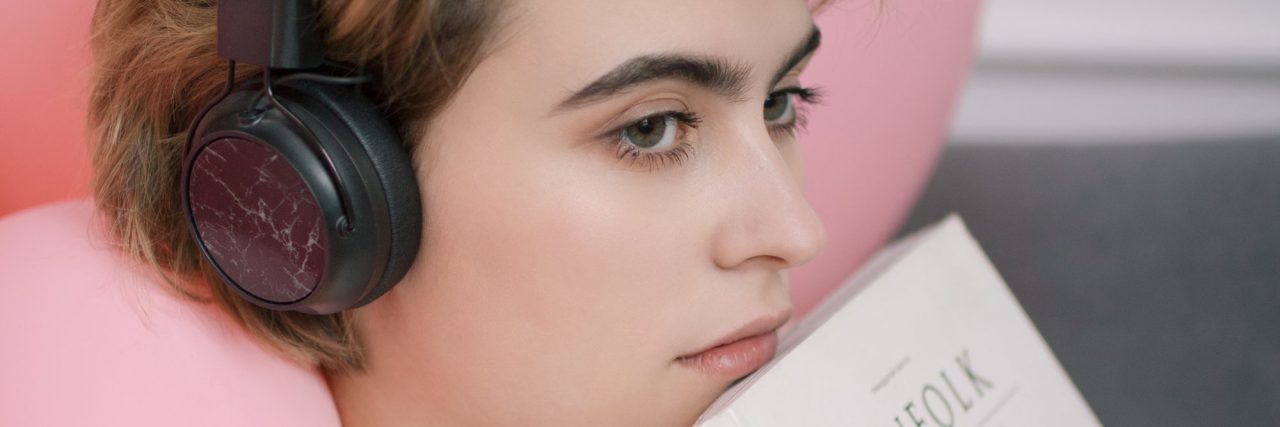What Logic’s Suicide Hotline Song Means to Me Now That I’m No Longer Suicidal
Editor's Note
If you experience suicidal thoughts, the following post could be potentially triggering. You can contact the Crisis Text Line by texting “START” to 741741.
I heard about Logic’s song “1-800-273-8255” when everyone else did. It blew up in popularity and discussion following its release last year. I actually did not look up the song and listen to it, though, simply because I was in a bad place and I didn’t have much motivation to do anything.
I heard it on the radio about two weeks later. I had to pull my car over because I was crying so much. I didn’t tell anyone about it at the time, because I didn’t want to worry them… but I had never heard a song that made me feel as understood as this song did. When the music video was released, I was as equally moved, if not more.
I had a hard time with the song though because, at the end, the singer/character states that they “don’t even wanna die anymore.” I’m willing to admit that, at the time, I was having what my therapists later called passive suicidal thoughts, meaning I didn’t have plans to die by suicide, but I thought about it often. I couldn’t truly say I didn’t want to die, because that went against the thoughts racing through my mind.
As I was looking over the lyrics to write this, I learned the song is actually sung from the perspective of someone who wants to die by suicide and calls the hotline. The song’s progression made so much more sense to me after realizing that, and it really highlights the importance of reaching out and the difference that one conversation can make in a person’s life.
For no specific reason, I hadn’t heard the song in a while. This week it came up on a Spotify playlist I had made, and at first, I didn’t listen that closely. As it got to the second verse, when Alessia Cara starts singing, it caught my attention. I was hearing it from a new perspective, one where suicidal thoughts were rare. One where I really wanted to be alive.
I started the song over and listened to the way it progressed, feeling amazed. This song was an anchor for me when I was feeling “low,” and a celebration when I was feeling “high.” What hit me the most, though, was that different parts of the song had such powerful meaning at different points in my life.
For me, recovery has not been as simple as calling into a lifeline. It’s been six months of intensive therapy (five days a week for seven hours a day at one point) and a lot of rediscovery. More days than not, it was a fight to keep going. My lifeline hasn’t been one phone call… it’s been a team of therapists encouraging me and telling me they wanted me to be alive. It’s been the understanding and passion represented in this song.
In an interview, Logic said fans were telling him that he had saved their lives with his music. He found that hard to believe, and stated, “I wasn’t even trying to save nobody’s life. And then it hit me, the power that I have as an artist with a voice. I wasn’t even trying to save your life. Now what can happen if I actually did?”
I don’t think people realize how much power their words have, sometimes. The same way that Logic (and many other singers) have saved listeners’ lives, I can say with absolute certainty that my individual therapist has saved my life. The number of calls into the Suicide Prevention Lifeline went through the roof after Logic’s VMA performance. Words have power… but actions have power too.
Asking for help is not weak. Fighting for your life is not weak. A single phone call could be the strongest thing you ever do.
I want you to be alive.
Follow this journey on the author’s blog.
Photo by Aiony Haust on Unsplash

